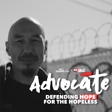
REPLAY: The Importance of Training & Preparing | Safe Home Series, Part 2 | S6, Ep 19
In this replay of our Trafficking Free America Podcast, we continue our deep dive into what it truly takes to launch and sustain a safe home for survivors of human trafficking in the U.S.
Host Jeremy Hicks is joined again by Brandy Cristafulli, founder of Life Recaptured, to unpack the critical importance of training, preparation, and partnership. This episode reveals why heart alone isn't enough — and how skipping essential preparation can actually do more harm than good.
If you're considering opening a safe home or want to support one effectively, this conversation is essential.
🎧 Part 2 of our Safe Home Training Series
🌐 Learn more: https://www.usiaht.org
💙 Support Life Recaptured: https://www.liferecaptured.org
❤️ Become an Abolitionist: https://www.usiaht.org/give
⏱ Timestamps
00:00 – Welcome to the replay: Why training is the most critical first step
00:36 – Brandy shares her early experiences with spiritual warfare
01:21 – The unseen cost of starting and running a safe home
02:12 – Who trained Brandy? The role of Selah Freedom
03:05 – How working with law enforcement changed everything
04:23 – The trauma survivors face — and why training saves lives
06:03 – “Don’t do this without preparation” — advice from a seasoned pastor
07:08 – The financial and emotional cost of running a safe home
08:24 – The beauty of healing: Teaching music, finances, and dignity
09:53 – Core values and boundaries: How Life Recaptured maintains safety
10:46 – How the program phases work: From assessment to empowerment
12:25 – Why there’s no time limit for healing
13:26 – Step one: Get trained by the right people (Selah Freedom and others)
14:12 – Collaborating with law enforcement, hospitals, courts, and schools
16:29 – Introducing the Tyler Court: A trauma-informed legal system
17:38 – Why many survivors say “no” at first — and how patience changes lives
19:00 – What it actually costs to run a safe home (and why support is vital)
22:24 – Building trust: From a secret location to national referrals
23:32 – USIAHT curriculum going into 69,000 students in Brevard County
25:12 – Is it worth $100,000 per survivor? Yes. And here’s why.
28:05 – You don’t work this by emotion—you work it by preparation
29:17 – The brutal truth: Most survivors in this home are from local families
💡 What You’ll Learn
- Training saves lives — compassion without preparation can be dangerous
- Law enforcement & trauma care must be integrated from day one
- $600,000 a year, 7 beds filled — why quality survivor care is expensive
- Boundaries and phases make or break long-term survivor success
- Most victims aren’t kidnapped — they’re trafficked by family or boyfriends
- Collaboration is essential — from courts to schools to sheriffs
🎙 Want to support the mission?
✅ Like, comment, and share this episode
✅ Give monthly to a local safe home
✅ Start your training journey today with USIAHT & Selah Freedom
#TraffickingFreeAmerica #ReplayEpisode #SafeHomeTraining #BrandyCristafulli #LifeRecaptured #USIAHT #HumanTraffickingAwareness #StartASafeHome #SurvivorCare #PodcastSeries #JeremyHicks

